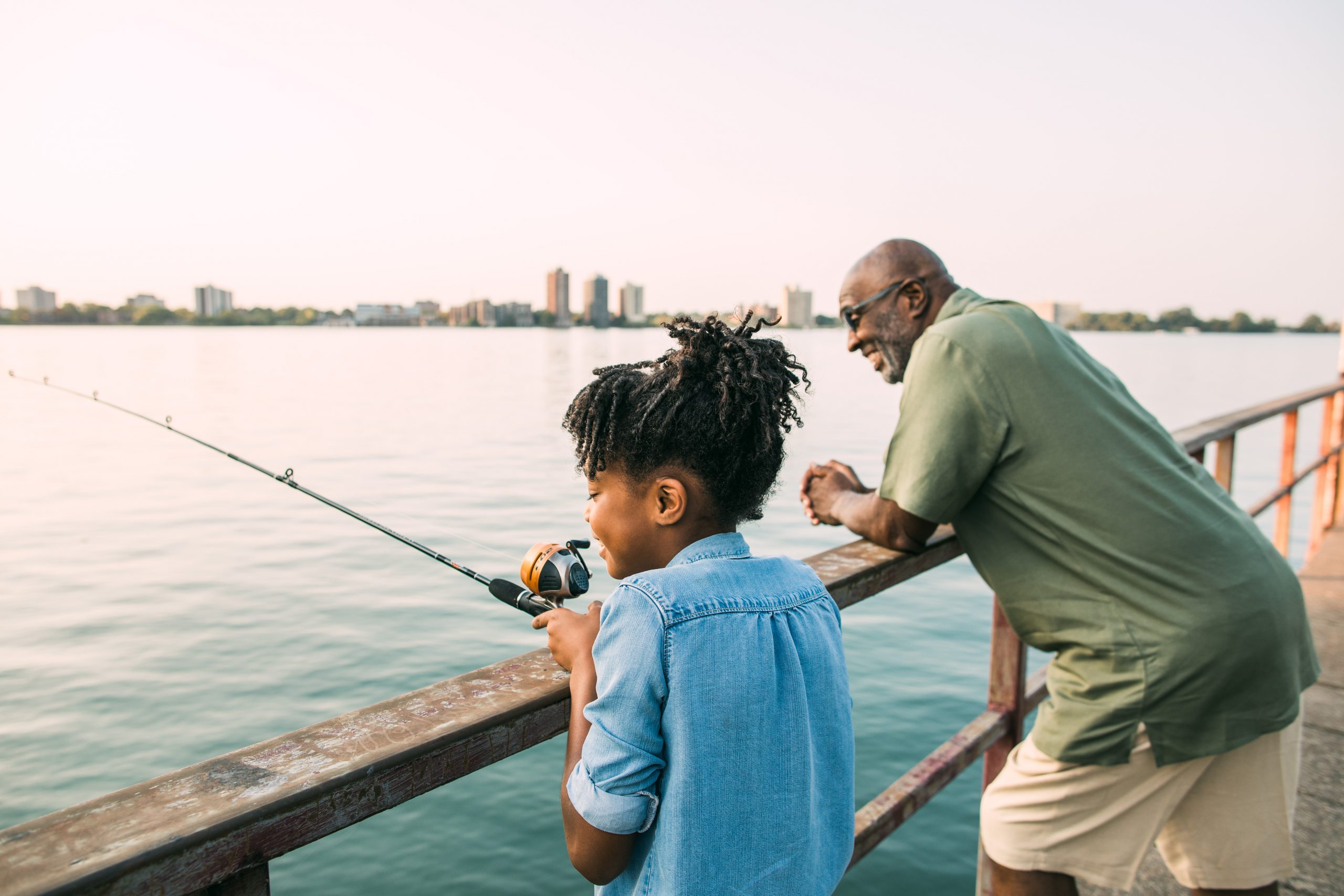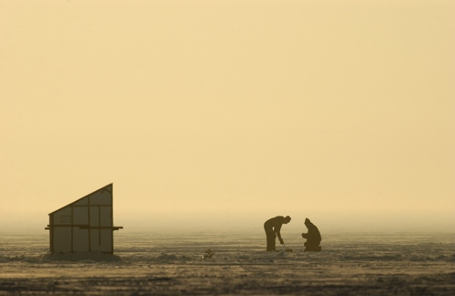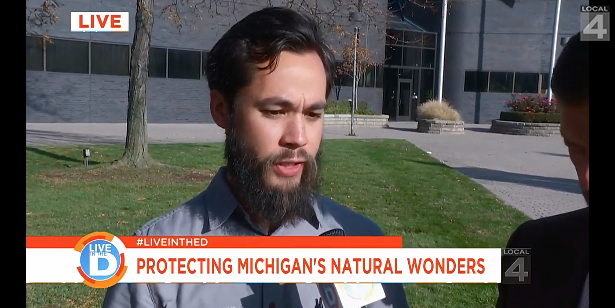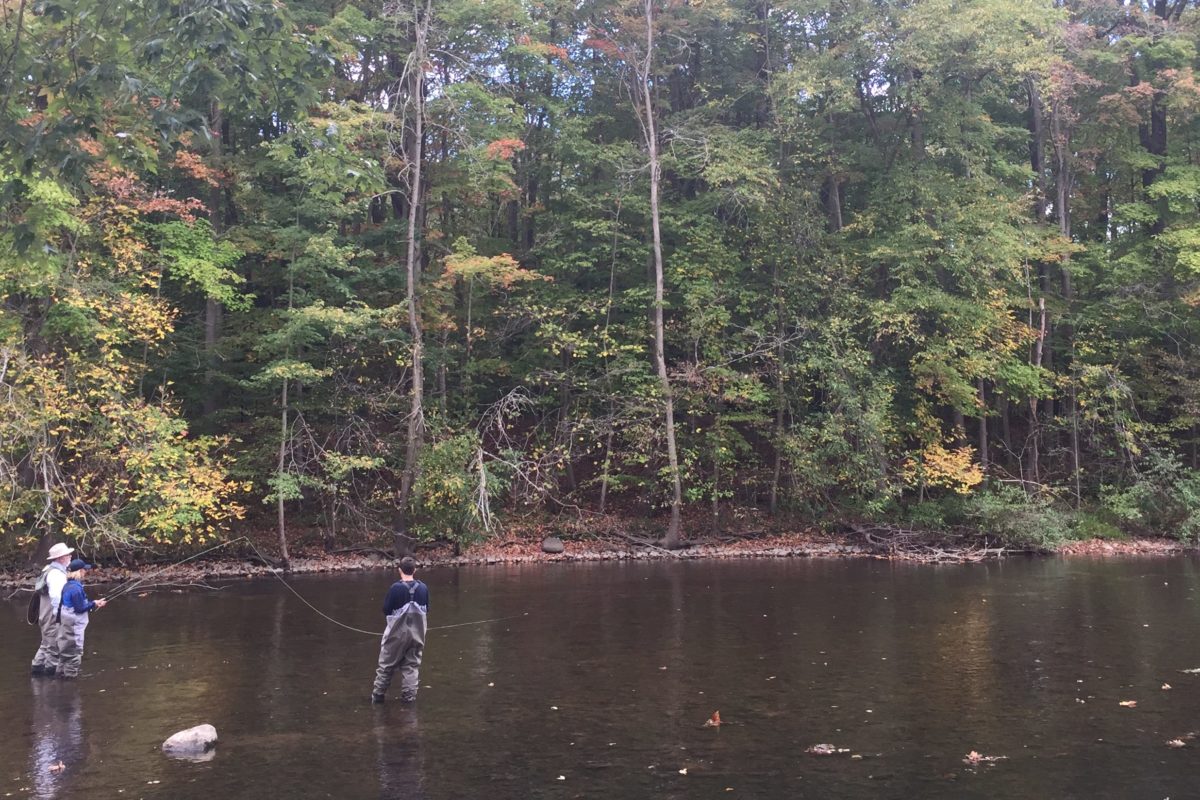Record-setting fishing activity in 2020 provided boost to Michigan economy, conservation efforts
Michiganders and visitors purchased a record 1.5 million state fishing licenses in 2020 – a jump from 1.3 million sold in 2019 as the pandemic brought an influx of people outdoors looking for socially distanced recreation.
And conservationists are hopeful the upcoming Free Fishing Weekend will keep the momentum going.
“Last year was a banner year for fishing in Michigan as tens of thousands of men, women young people and first-time license holders were able to rediscover or learn the joys of fishing while making memories that will last a lifetime,” said Michigan Wildlife Council Chair Nick Buggia.
Buggia said the June 12-13 Free Fishing Weekend is a great time to introduce and reintroduce people to one of Michigan’s premier outdoor family-fun activities. On those two days, Michigan and out-of-state residents can fish on both inland water and the Great Lakes for all species of fish without purchasing a fishing license. All fishing rules and regulations will still apply.
Along with fishing licenses, a state Recreation Passport (parking pass for all state parks) will not be required for entry into state parks and boating access sites.
“We want to get even more folks hooked on fishing, which in the long run benefits everyone in the state,” Buggia said.
Hunting and fishing have a combined $11.2 billion economic impact on Michigan and provide an estimated 171,000 jobs, according to a 2019 study released by the Michigan United Conservation Clubs in partnership with Michigan State University.
The Michigan Department of Natural Resources reports that the 1.5 million fishing licenses sold last year was an 8% increase from 2019. First-time license purchasers totaled 321,835 – 68,000 more new customers than 2019.
Fishing license sales to young adults ages 17-24 saw a 20% increase to 155,196 from 128,387. The number of women purchasing fishing licenses jumped 22% to 272,070 from 221,995.
Buggia noted the increase in licensed anglers is good news for Michigan conservation efforts, which are primarily funded through the sale of hunting and fishing licenses and equipment, not taxpayers.
Conservation activities keep animal populations in balance, protect Michigan waters from habitat degradation and invasive species as well as safeguard the state’s forests to provide habitats for thousands of wildlife species and reduce the risk of wildfires and flooding.
Licenses purchased by hunters and anglers generated an estimated $65.5 million for the Michigan Game and Fish Protection Fund in 2020. The fund is the DNR’s largest revenue source and is critical to its conservation work. The sale of hunting and fishing equipment raised an additional $29.4 million to support wildlife and natural resource management.
Outside of Free Fishing Weekend, those 17 years of age or older must purchase a license to fish in Michigan. Any adult actively assisting a minor must also be licensed. Fishing licenses can be purchased online or in person.



